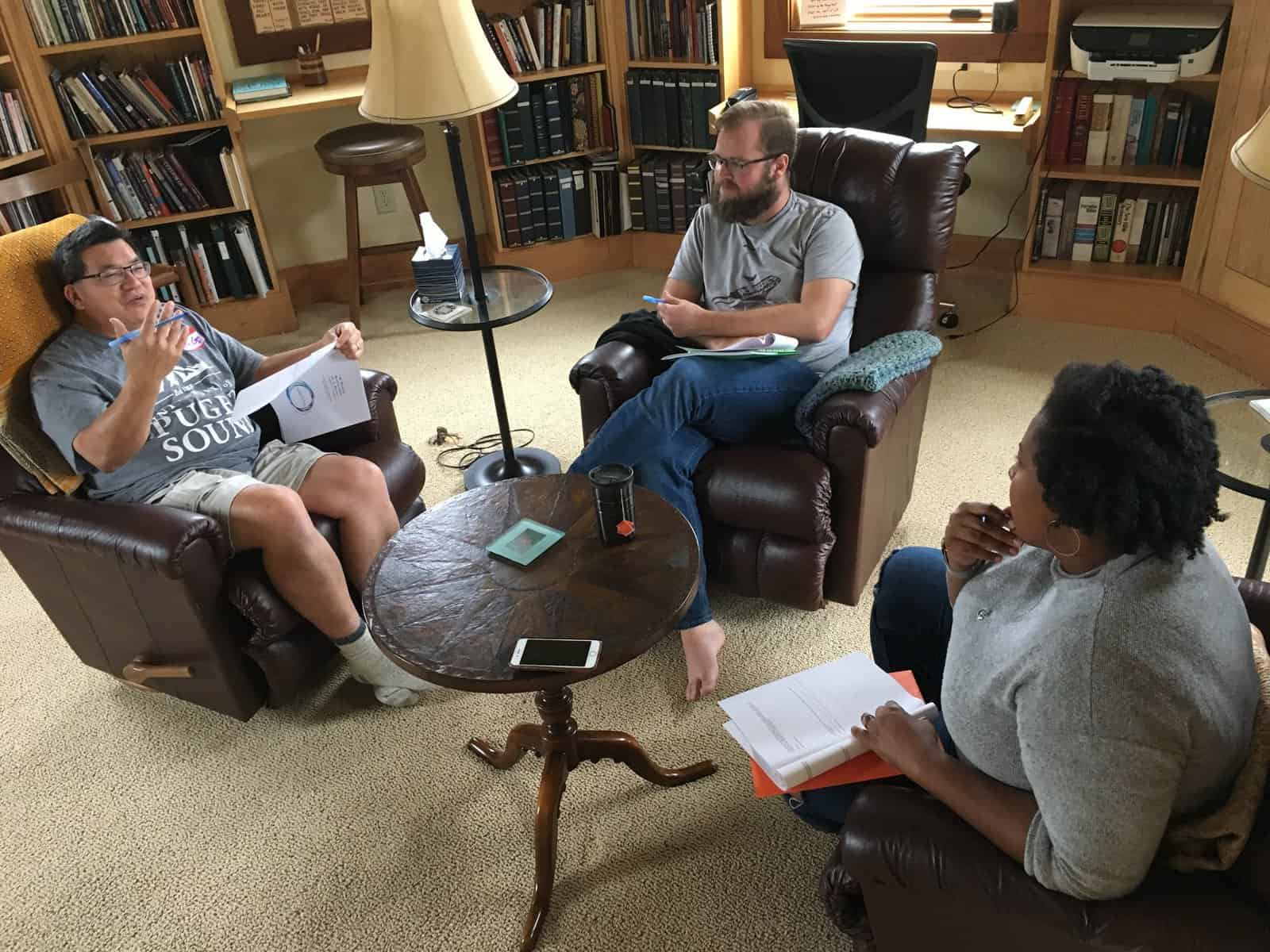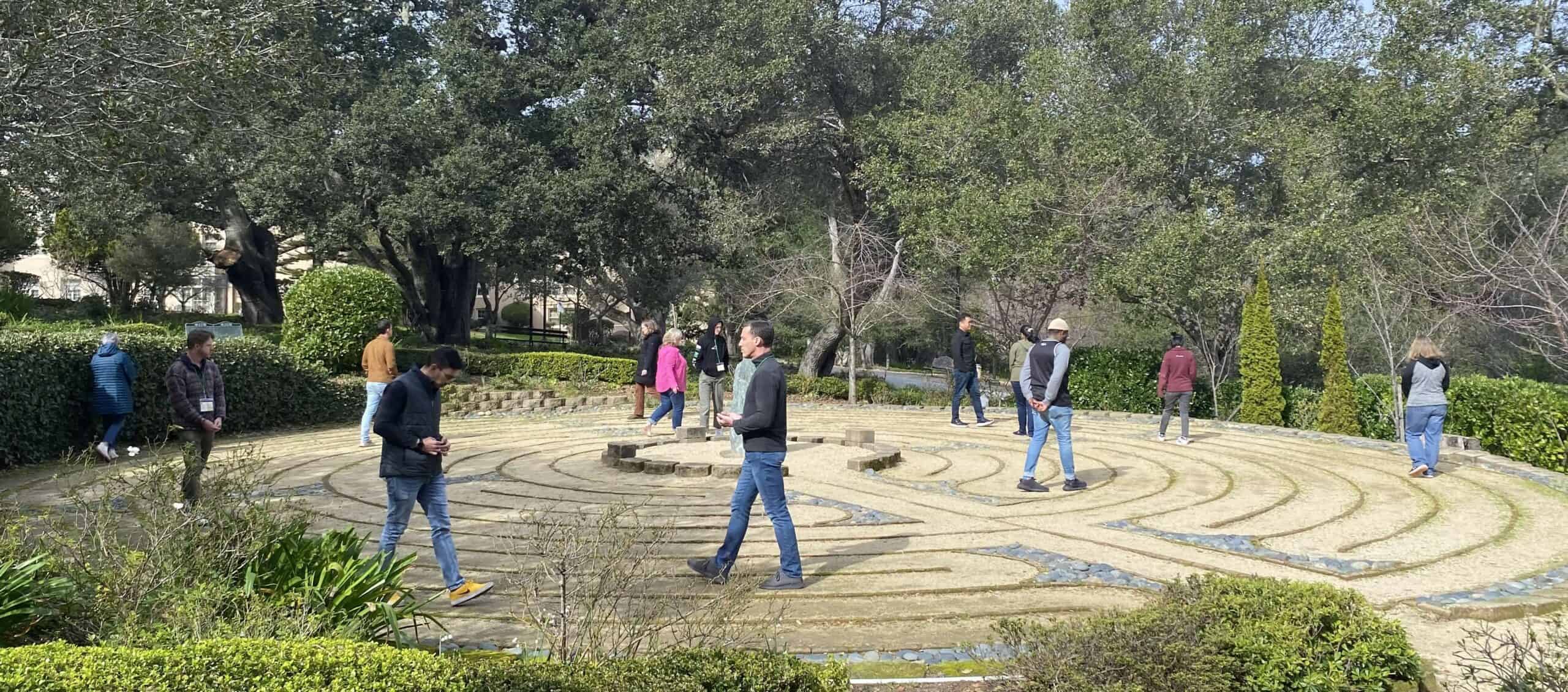Oriented to Love Facilitation Training: Sept. 19-21, 2025

You’ve attended an Oriented to Love dialogue as a participant and want to understand better what makes dialogue work and how you can extend it to others. You care about helping the church (or even just your closest family and friends) have a true conversation about sexual/gender diversity—or other divisive topics—not a debate or a sermon, but a true conversation.
We provide regular dialogue facilitation training because the need for this kind of open-hearted conversation around issues of sexuality and gender continues to grow. Our goal is to help equip you to shape and lead effective dialogue in your own geographic region, church, and/or circles of influence, because these experiences have the power to build bridges of healing and relational love.
Please note: You must attend an Oriented to Love dialogue before you can participate in a facilitator training.
To keep this a high-touch, in-depth and relational experience, we limit training groups to about a dozen participants, so register by July 20, 2025 to guarantee your spot.
Some of the things we’ll cover at the facilitator training include:
- Know thyself: Hosting life-giving conversations across deep difference starts with understanding yourself (your strengths and triggers, your temperament, your relational style, etc)
- Hospitality: Why welcoming and caring for the “other” is essential to unity in the Body of Christ
- The power of a good question: How to craft (and help others ask) dialogue-nurturing questions
- Dialogue 101: What fosters civility, curiosity, and compassion
- Leading well: The role and responsibilities of a good facilitator
- Privilege: dealing with the inevitable power differentials in group settings
- Brainstorming: We’ll team up to map out a handful of ideas for how trainees envision using these skills in their own contexts
We’ll also discuss how to lead with vulnerability and invite Christ into the center of the work. We will model and practice dialogue exercises and conversation while reflecting on the goals and outcomes as we go. The training will be highly interactive, experiential, and discussion-based. What you bring to the training will determine to a large extent what you will take away from it. The weekend is also designed to be a time of rich fellowship and community-building through mutual vulnerability, hosted in a setting of contemplative beauty.
Please note: As you know from participating in a past dialogue, Oriented to Love is for Christ-followers who are committed to respectful and loving dialogue and are willing to do the hard work of building community among people who disagree. This is beautiful, sacred, and exciting work that is not about persuasion, correction, or instruction but about taking the time to discern Christ’s presence in the other and trusting the Holy Spirit to guide each of us.
If you have any questions, contact Kristyn Komarnicki.
When: 3pm on Friday, September 19 to 3pm on Sunday, September 21, 2025
Where: Mercy Center, Burlingame, CA (just outside San Francisco)
Who:
- Kristyn Komarnicki, director of Oriented to Love
- Francesca Nuzzolese, Oriented to Love spiritual director

Registration:
$700 is the minimum fee we require. (In order to make these dialogues as accessible as possible to all who are interested, the training fee is subsidized. The actual cost is about $975. If you are able to pay any amount above the minimum $700 fee, we encourage you to do so.) A limited number of partial scholarships will be available.
Registration fee covers all meals, lodging, and materials. Because of a limited amount of required prep work you will need to do before attending the training, early registration is encouraged. A $300 deposit will hold your spot, with the balance due by July 31, 2025.
What past facilitation trainees have experienced:
“I have used the facilitator’s training to deal with diversity and inclusion in handling the mental health needs and advocacy needs of clients, families, and community mental health at large almost daily in the last three years.”
“The activities gave me realistic perspectives on the work involved. They also gave me plenty of opportunities to question my true motivations for facilitating and doing this work.”
“I feel like I have a better sense of my role as a facilitator, the guiding principles and values of dialogue, great resources, and a community to support me. I even have a sense of next steps!”
“I have a greater sense of self and how to tune into others. The questions of privilege, power differential, and how to close the gap between intentions and impact is something I’ll continue to work on.”
“I can only begin to express how OTL and the facilitator training have shifted my perception and opened up a whole new way of working in and seeing the world. It’s changing the trajectory of my career and the things I give my energy to. It’s changing the way I interact with clients and improving my professional relationships. And it’s given me invaluable new tools to navigate tough conversations — in any domain.”
“I really appreciate understanding the elements of safety, vulnerability, structure, etc. that create the environment for a dialogue to emerge. Very powerful. This was an incredibly practical training that has several applications—I hope to work with adults and teens having dialogue.
“I feel like I have a better sense of the philosophy behind dialogue now. I knew coming out of the first dialogue that something new had happened in me…. And I now realize that this new thing was dialogue. That we can actually fully bring each of ourselves, hold each other, journey together in difference. In fact, the difference is where the mystery of growth comes to be. I also feel like I know myself more deeply, my natural responses to folks and my triggers, which will allow me to bring myself more fully into dialogue. I recognize that I tend to not be firm with boundaries out of fear of inconveniencing or hurting someone, but this leads me to be an absence rather than a presence to others in the circle. I am growing in being comfortable bringing my whole self to the space of dialogue.”
“Reconnecting with the foundations of dialogue in this very hostile world we’re in right now and getting more language to talk and explain dialogue was so good. The spiritual components and foundation of this work is SO important—to have people praying for the work, to make sure I’m taking care of myself in the work, to provide spiritual care for people involved in the process—so essential.”
“This training will help me personally with small groups, meetings, etc. I will also be relying upon these tools as I begin working with dialogue group(s) in my local church.”
